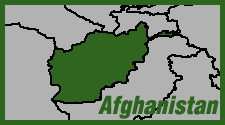 The latest Afghanistan Opium Survey (PDF), released Nov. 13 by the UN Office on Drugs and Crime (UNODC), finds that the country produced record levels of poppy in 2013. Total production reached 5,500 tons—up by nearly 50% over last year's figure of 3,700. Cultivation amounted to 209,000 hectares (516,000 acres)—a 36% increase over last year. The previous record was 193,000 hectares (477,000 acres) in 2007. And prices dropped by 12%—clearly due to boosted production. Eradication efforts fell by 24%, and the seizure rate lagged behind that of other opium-producing countries.
The latest Afghanistan Opium Survey (PDF), released Nov. 13 by the UN Office on Drugs and Crime (UNODC), finds that the country produced record levels of poppy in 2013. Total production reached 5,500 tons—up by nearly 50% over last year's figure of 3,700. Cultivation amounted to 209,000 hectares (516,000 acres)—a 36% increase over last year. The previous record was 193,000 hectares (477,000 acres) in 2007. And prices dropped by 12%—clearly due to boosted production. Eradication efforts fell by 24%, and the seizure rate lagged behind that of other opium-producing countries.

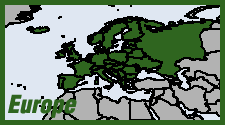 Italian police say Albania, the impoverished Balkan country just across the Adriatic Sea, is the source for vast quantities of cannabis entering G8 and EU member Italy. In the latest major haul in July, Italian Finance Police intercepted a full metric ton of cannabis from a speedboat along the coast of southern Puglia region. Four crewmen were arrested—two Italian and two Albanian. This came one month after the Finance Police released the results of months of air reconnaissance of Albania's hinterland, undertaken in a joint operation with Albanian police—identifying 500 cannabis plantations, accounting for a combined production of 1,000 metric tons with an estimated retail value of 4.5 billion euros. Over the past 20 years since the fall of its rigidly closed Communist dictatorship, Albania has won the title of "Europe's Afghanistan" for its prodigious cannabis production.
Italian police say Albania, the impoverished Balkan country just across the Adriatic Sea, is the source for vast quantities of cannabis entering G8 and EU member Italy. In the latest major haul in July, Italian Finance Police intercepted a full metric ton of cannabis from a speedboat along the coast of southern Puglia region. Four crewmen were arrested—two Italian and two Albanian. This came one month after the Finance Police released the results of months of air reconnaissance of Albania's hinterland, undertaken in a joint operation with Albanian police—identifying 500 cannabis plantations, accounting for a combined production of 1,000 metric tons with an estimated retail value of 4.5 billion euros. Over the past 20 years since the fall of its rigidly closed Communist dictatorship, Albania has won the title of "Europe's Afghanistan" for its prodigious cannabis production.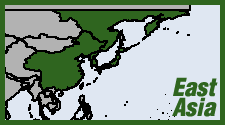 Authorities in Hong Kong are boasting that the city's long-reigning criminal gangs, the notorious Triads, are finally crushed following an operation coordinated with police forces in Macau and mainland China's Guangdong province, in which more than 14,000 were arrested and 2,500 properties raided—including discos, massage parlours and nightclubs. Police confiscated HK$39.3 million (US$5 million) worth of illicit goods, including drugs, contraband cigarettes, pornography and weapons. Leading figures in the powerful Sun Yee On and 14K triads are said to be among the detained.
Authorities in Hong Kong are boasting that the city's long-reigning criminal gangs, the notorious Triads, are finally crushed following an operation coordinated with police forces in Macau and mainland China's Guangdong province, in which more than 14,000 were arrested and 2,500 properties raided—including discos, massage parlours and nightclubs. Police confiscated HK$39.3 million (US$5 million) worth of illicit goods, including drugs, contraband cigarettes, pornography and weapons. Leading figures in the powerful Sun Yee On and 14K triads are said to be among the detained. 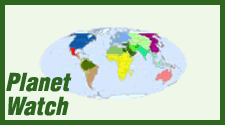 Helen Clark, head of the
Helen Clark, head of the 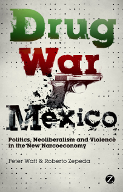 As nightmarish violence continues in Mexico, with horrific massacres and chaotic urban warfare right on the USA's southern border, a couple of academics at England’s University of Sheffield provide a readable 250-page primer on why this is happening now, and take a stab at what can be done to address the crisis—other than escalating it with militarization.
As nightmarish violence continues in Mexico, with horrific massacres and chaotic urban warfare right on the USA's southern border, a couple of academics at England’s University of Sheffield provide a readable 250-page primer on why this is happening now, and take a stab at what can be done to address the crisis—other than escalating it with militarization.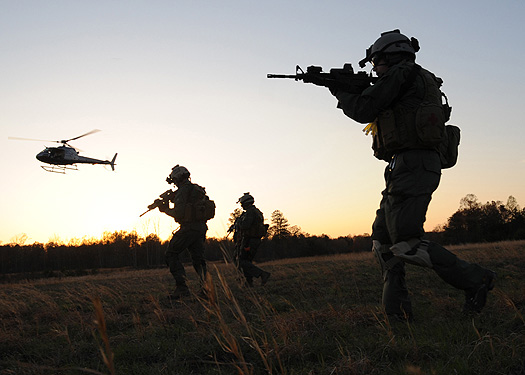 The most enlightened cannabis connoisseurs—those who still have a link back to the values that defined the hippie culture—tend to be conscious consumers when it comes to food or computers or whatnot. They may buy organic tomatoes, boycott Taco Bell to support exploited farm workers in Florida, and petition Apple about the brutal conditions in their Chinese assembly plants. But do they pay as much attention to the source of their preferred smoking herb?
The most enlightened cannabis connoisseurs—those who still have a link back to the values that defined the hippie culture—tend to be conscious consumers when it comes to food or computers or whatnot. They may buy organic tomatoes, boycott Taco Bell to support exploited farm workers in Florida, and petition Apple about the brutal conditions in their Chinese assembly plants. But do they pay as much attention to the source of their preferred smoking herb? 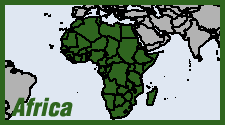 The Cape Flats, a sprawling poor area on the outskirts of Cape Town, has emerged as the epicenter of South Africa's crime crisis, the country's key transshipment point for dagga (cannabis), tik (cystal meth) and heroin. Long-simmering gang wars over control of the traffic exploded into horrific violence this year, leading to political stand-offs over how to respond. Western Cape province has called a special commission of inquiry into police actions in the conflicted township of Khayelitsha following charges that corrupt and aggressive policing has enflamed violence and led to vigilantism. But national Police Minister Nathi Mthethwa says the inquiry is illegal and exceeds provincial powers. In July, a request from West Cape Premier Helen Zille for military troops to patrol the Flats was turned down by President Jacob Zuma. By then, some 25 people, including seven children, had been killed in drug-related violence in the Flats over the past five months. (
The Cape Flats, a sprawling poor area on the outskirts of Cape Town, has emerged as the epicenter of South Africa's crime crisis, the country's key transshipment point for dagga (cannabis), tik (cystal meth) and heroin. Long-simmering gang wars over control of the traffic exploded into horrific violence this year, leading to political stand-offs over how to respond. Western Cape province has called a special commission of inquiry into police actions in the conflicted township of Khayelitsha following charges that corrupt and aggressive policing has enflamed violence and led to vigilantism. But national Police Minister Nathi Mthethwa says the inquiry is illegal and exceeds provincial powers. In July, a request from West Cape Premier Helen Zille for military troops to patrol the Flats was turned down by President Jacob Zuma. By then, some 25 people, including seven children, had been killed in drug-related violence in the Flats over the past five months. (





Recent comments
5 weeks 1 day ago
5 weeks 1 day ago
8 weeks 2 days ago
9 weeks 1 day ago
13 weeks 1 day ago
17 weeks 54 min ago
21 weeks 6 hours ago
21 weeks 5 days ago
31 weeks 5 days ago
35 weeks 6 days ago